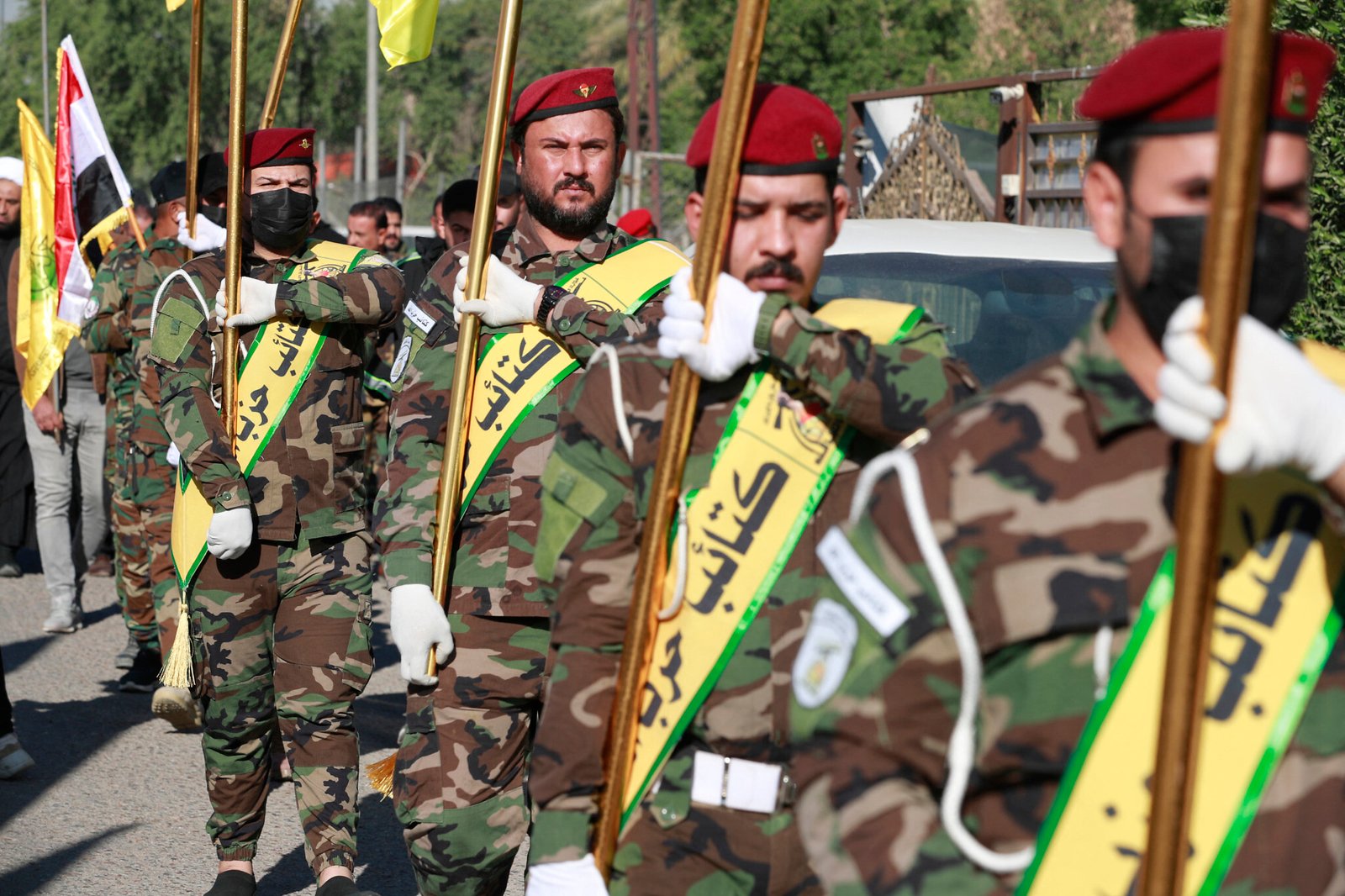
In an unexpected development, Kataib Hezbollah, the most influential Iran-backed militia in Iraq, declared the suspension of its military operations against US forces in the region just two days after a drone attack claimed the lives of three US service members and left numerous others injured.
The announcement, delivered in a statement on Tuesday, cited the intention to avoid complicating matters for the Iraqi government. Kataib Hezbollah affirmed its commitment to defending the people of Gaza through alternative means and advised members to exercise passive defense in the face of potential American hostility.
As a prominent armed faction within the Islamic Resistance in Iraq, Kataib Hezbollah’s decision carries significant weight. The group’s suspension of activities follows increased tensions between Iran-backed militias and US forces, with the US holding Iran responsible for supporting these factions, particularly singling out Kataib Hezbollah for Sunday’s fatal attack.
Responding to inquiries about the statement, Pentagon press secretary Maj. Gen. Pat Ryder emphasized the need for actions over words, reiterating the US call for Iranian proxy groups to cease their attacks. Despite previous US strikes targeting Kataib Hezbollah and other factions, attacks on US interests have persisted, occurring approximately 166 times since October.
Kataib Hezbollah’s statement also sought to distance itself from external influence, asserting autonomy in its actions while highlighting differences with Iranian authorities regarding tactics against US occupation forces.
The motives behind Kataib Hezbollah’s decision remain unclear, but an adviser to the Iraqi prime minister attributed it to efforts aimed at de-escalation and facilitating negotiations. Iraqi Prime Minister Mohammed Shia al-Sudani’s diplomatic endeavors, both internally and externally, contributed to this outcome, paving the way for discussions on the future of the US military presence in Iraq.
The forthcoming talks between the US and Iraq hold significance amid public calls for the withdrawal of US troops from the country, underscoring the complexities of managing regional dynamics and security interests.
